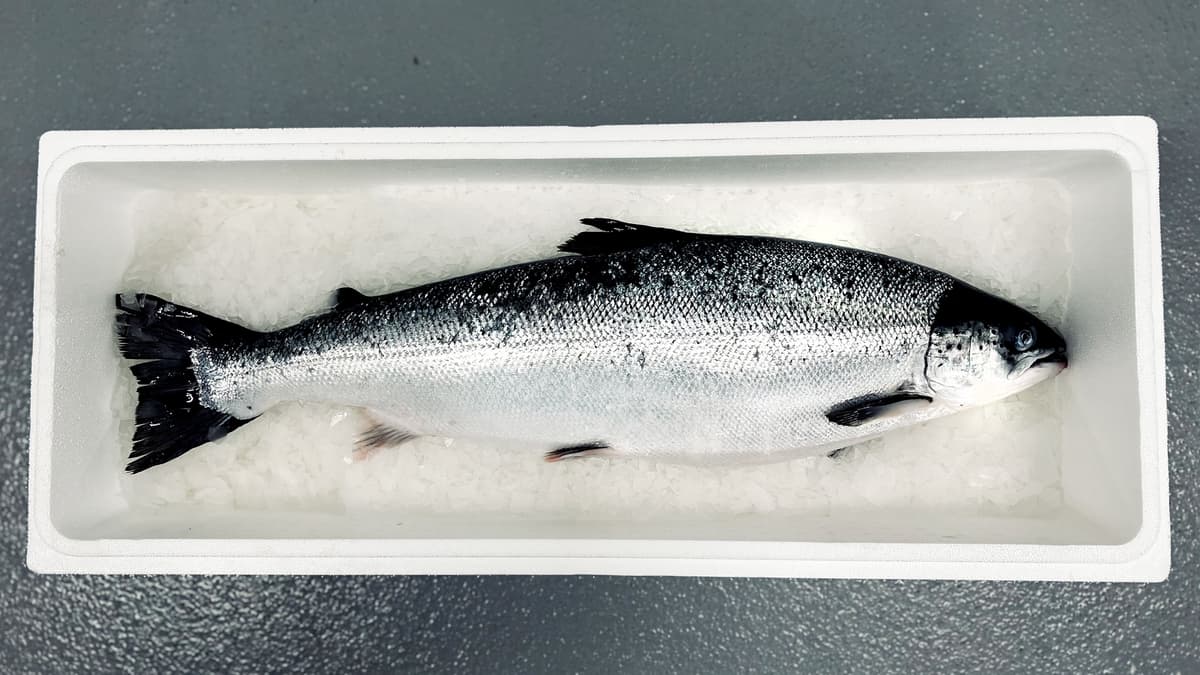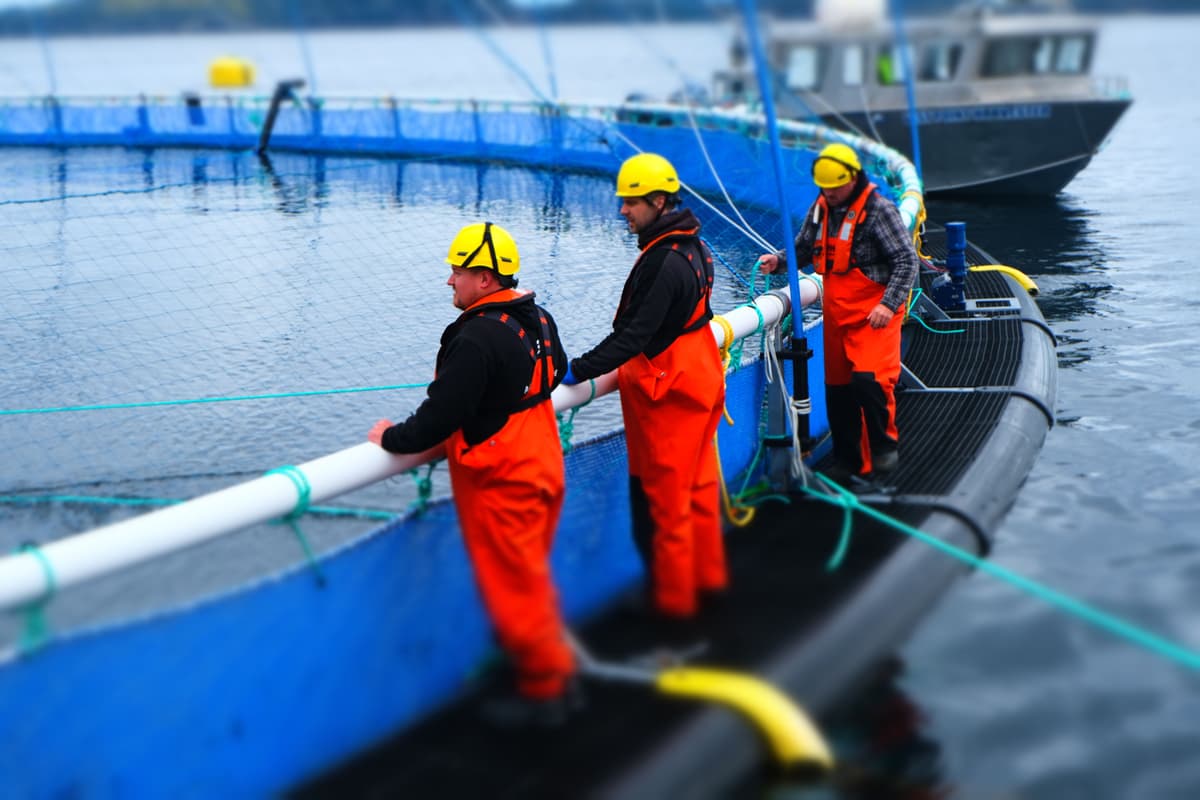🇳🇴 Grieg Seafood ASA reaches important milestone: commences harvesting of first generation of salmon in Newfoundland
Press release from Grieg Seafood
The first generation of fish in Placentia Bay in Newfoundland has been farmed with good fish health and welfare. Grieg Seafood will continue to develop its farming region in Newfoundland gradually and responsibly.
Last week, the first fish were harvested and then packed at Quinlan Brothers Ltd.’s processing plant in Bay de Verde in Newfoundland before they were transported to customers in the North American market.
“Harvesting the first generation of fish in Newfoundland marks an important milestone for Grieg Seafood. I am pleased to see that the fish has good welfare and that biological control has been strong,” says Andreas Kvame, CEO of Grieg Seafood ASA.
“This first, successful generation shows what enormous potential Placentia Bay in Newfoundland holds for sustainable salmon farming. This is especially true in light of the booming North American market just next door, where consumers are increasingly asking for local, healthy and climate friendly food. We will continue to develop our production in Newfoundland gradually and responsibly during the years to come. I want to congratulate all of my hard-working colleagues in Newfoundland with this achievement,” Kvame continues.
In the Spring and Summer of 2023, Grieg Seafood transferred the next generation of fish into three new ocean farms. The second generation will be harvested in 2024.
Fish from the farm Red Island are currently being harvested. The first generation spent about a year in Grieg Seafood’s freshwater and smolt facility in Marystown and was transferred to two ocean farms in Placentia Bay in 2022.
The first generation of fish has grown well throughout the year. Deep pens, no need for treatments of any form as well as transfer of best practices from similar conditions in other Grieg Seafood regions have contributed to good fish health and welfare throughout the production cycle. The first generation has a survival rate of 92 percent. The annual survival rate of all of the fish in the ocean farms is currently 96 percent.
The fish has been farmed with no sea lice issues.
The fish farmed in Newfoundland will be transported to the growing North American market without the need of air freight, making it a local alternative with low carbon emissions.
“Since 2014, we have been working towards this day, when we are finally able to send salmon grown in Placentia Bay to our customers and consumers. I am pleased with the biological performance of the first generation, including the survival rate as well as strong sea lice control,” says Knut Skeidsvoll, Managing Director of Grieg Seafood Newfoundland.
“I want to thank all of my colleagues in Newfoundland for their hard work during these years, as well as the local communities of Placentia Bay and the Province of Newfoundland & Labrador for their support. We will keep developing our Newfoundland region step by step, and create jobs and value for the communities where we operate for years to come,” Skeidsvoll says.
About Grieg Seafood Newfoundland
- Grieg Seafood Newfoundland currently has an on-land RAS facility consisting of a hatchery, a nursery and a smolt unit in Marystown, as well as five marine farms in Placentia Bay. 14 licenses are currently approved.
- Grieg Seafood aims to harvest 5000 tonnes of salmon in Newfoundland in 2023.
- Grieg Seafood is developing the project based on existing best-practice farming technologies.
- The company is still in an early phase and will expand the project gradually and responsibly, in line with biological developments.
- The aquaculture project in Placentia Bay started in 2014.
Contact information
Kristina Furnes
Chief Communications Officer
Grieg Seafood ASA
Phone: 0047 48185505
Email: [email protected]
Originally published on 30 October by Grieg Seafood.
Announcements are published as a service to readers. The sender is responsible for all content.
Announcements for publication can be submitted to [email protected].


